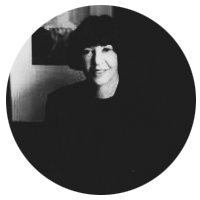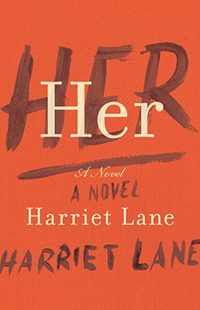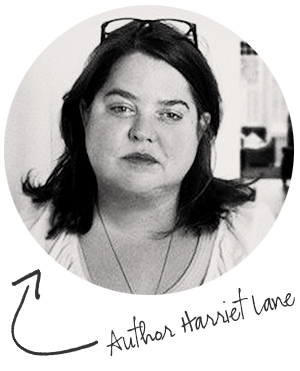Yes, it was a wretched winter.
But the polar temperatures and alpine snow piles allowed me to stay at home guilt free and chores be damned, curl up under the extra quilt and read. Besides which, some of the books I read helped me keep warm. Because they were hot. I don’t mean porno. I mean they were the kind of literary works that have some heat and sizzle. I read four such novels this winter. All four were written by women, one of them a debut novelist, the others well established in their native countries of England and Canada but little known in the U.S.—a provincialism on our part that is being rectified  by the publication here of their sparkling new works.
by the publication here of their sparkling new works.
Over the next four weeks, I’ll introduce you to each of the books.


Her: A Novel
by Harriet Lane
Little Brown. 261 pp.
Lane is a prime practitioner of what I hear tell is a new genre, domestic thrillers. They’re usually about creepy marriages. But Her is about a creepy friendship. In her local supermarket in London, Nina, an artist with a difficult teenage daughter, a successful husband, and a rich and famous father, spots Emma, a woman she remembers from her adolescence and against whom she harbors some deep resentment. Emma doesn’t remember or recognize Nina who, as they pass one another in the store, sneakily steals her wallet. And even if she did, the incident that looms so large in Nina’s memory was insignificant to Emma.

Nowadays she’s the mother of a toddler and about to give birth to a second child. She’s left her job in TV to care for her children, and although her husband tries to be helpful, Emma feels oppressed by all the dreary domestic duties motherhood entails. When, a few days after the theft of the wallet, Nina gets in touch with Emma, claims to have found the wallet on the street, and offers to come by and return it, Emma is grateful and welcoming. From that point forward, Nina insinuates herself into Emma’s life, doing her favors both small and big, offering to babysit, helping her give a dinner party—her first since the baby was born—letting her stay in her family’s splendid vacation home in Provence. We know Nina’s planning something sinister, but we don’t know what. And as the story unfolds and we’re turning pages as fast as we can, we want to cry out to Emma not to trust her newfound friend. But no spoilers here.
Suffice it to say that this is a book that eventually will strike terror not just in Emma, but in any reader who has ever found herself in a friendship that
seems too good to be true.

Lane can write. “Raindrops hang like glass beads on the washing line,” she tells us about the clothes hanging in Emma’s yard. But mostly her technique is to itemize what things look like, often sounding like a writer of catalog copy. Nina’s kitchen is “huge… old tawny floorboards dimpled with the imprints of furniture scrapes and dropped pots, and blackly freckled with ancient woodworm. A rather beautiful modern rug in greens and golds. A linen press full of antique glassware.” Whereas Emma’s kitchen is “unremarkable: pale blue units, enamel lampshade over the wooden table, a string of fairy lights looped over the Angie Lewin print of seed heads.” It’s a technique that grows wearisome after a while. But dazzling verbal play is not the skin Lane puts into the game. What she’s got going for her is her skill at plotting. Her is suspenseful, chilling and scary as all get-out.
FOF award-winning author, Linda Wolfe, has published eleven books and has contributed to numerous publications including New York Magazine, The New York Times, and served on the board of the National Book Critics Circle for many years.
